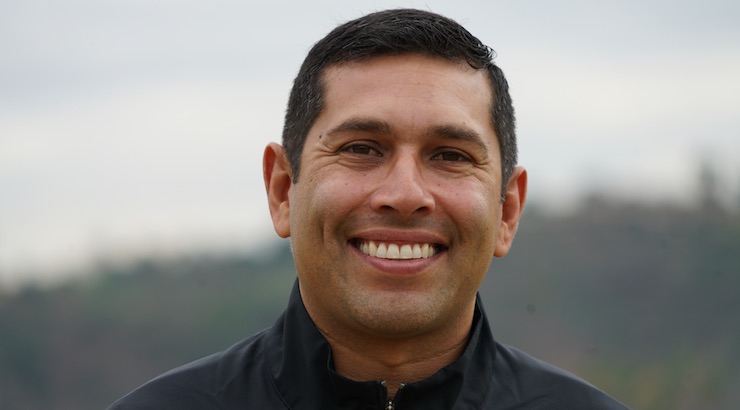San Diego Surf Soccer Club’s New Girls Director of Coaching is Rob Becerra and Brian Reed Joins as Girls Director of ECNL
It has always been known that coaches make the difference — and, top players always flock to clubs with the best coaches. The goal of great coaching is also the goal of a great youth soccer club — to maximize the potential of their players — which are the club’s most valuable resources. San Diego Surf SC understands this more than most youth soccer clubs in the USA and has consistently sought out the most talented coaches.
San Diego Surf Soccer Club is one of the top youth soccer clubs in America. While it boasts of earning its 10th National Championship last year, the youth soccer club is more of a strong family of coaches dedicated to player development rather than simple hardware.
Now, this top Southern California, nationally acclaimed club is adding Rob Becerra and Brian Reed to its accomplished coaching roster.
“At Surf SC, we are focused on providing more opportunities for our players by bringing the best coaching leadership to our club and offering the most complete player development program,” said Jeremy McDonald, President of Surf Soccer Cup. “It is with great pleasure we welcome Rob Becerra and Brian Reed to Surf.”
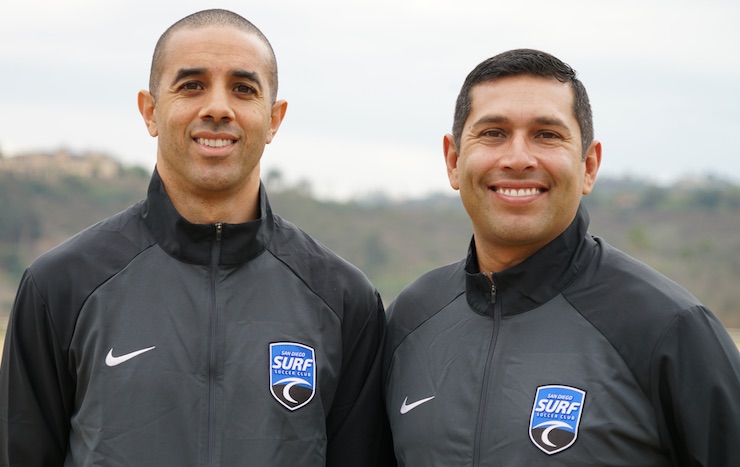
“As the Girls Senior Director of Coaching, Rob will be overseeing our girls development program with Mark Spooner focused as the Girls DA Director and Brian Reed as a dedicated Girls ECNL Director,” said McDonald. “With these additions, along with a revamped, player-centric curriculum and additional investment, we are determined to build the Surf SC Girls’ environment into one of the country’s best programs and create the groundwork for a brighter future for women’s soccer.”
Becerra, who holds a USSF A License as well as a Director of Coaching License, is now the new Girls Director of Coaching. The highly successful and internationally respected former U.S. Soccer Technical Director and Youth National Team Assistant Coach leaves the LA Galaxy staff to accept the position. Before joining the U.S. Soccer, Becerra coached at Stanford University from 2006 to 2013.
Prior to being an Associate Head Coach of the Stanford Cardinals where he helped the University establish itself as one of the strongest defenses in the Pac-10 — the team gave up less than a goal per game in the 74 matches — Becerra coached at the Redlands, where he led the Bulldogs to their most successful run in school history.
As Head Coach of Redlands, Becerra compiled a 126-28-8 record while earning their first NCAA playoff appearances, while coaching the team to the NCAA Division III Final and five-consecutive Southern California Intercollegiate Athletic Program titles as well as earning 2001 All-Far West Region Coach of the Year.
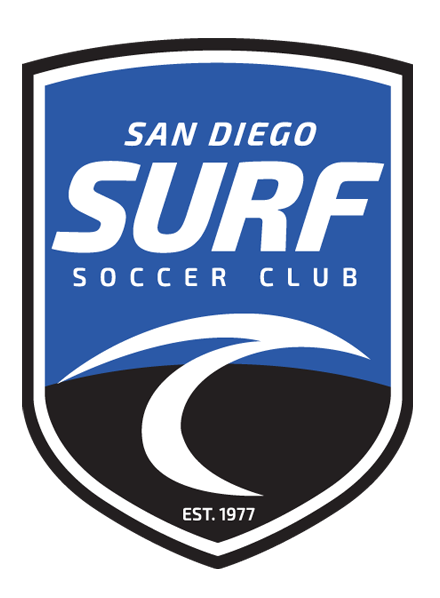 Becerra is enthusiastic about taking over his new role at San Diego Surf SC and sees an enormous future for the club. Becerra asked Reed to join him at Surf SC to take over the ECNL program.
Becerra is enthusiastic about taking over his new role at San Diego Surf SC and sees an enormous future for the club. Becerra asked Reed to join him at Surf SC to take over the ECNL program.
Reed who was an Assistant Coach with the LA Galaxy First Team responsible for the video analytics and was formerly with Cal Poly University as well as LMU men’s soccer coaching staff and the Slammers Soccer Club. Reed also has focused his efforts on preparing players for college opportunities and takes great pride is assuming his role as ECNL Director.
Surf SC is one of the few youth soccer clubs which has both the full Girls U.S. Soccer Development Academy (DA) and is also a founding member of ECNL.
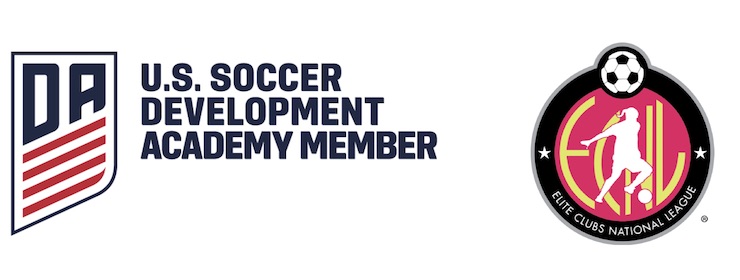 SoccerToday’s Diane Scavuzzo interviewed Becerra and Reed on joining Surf SC and how the youth soccer club will handle fielding DA and ECNL teams.
SoccerToday’s Diane Scavuzzo interviewed Becerra and Reed on joining Surf SC and how the youth soccer club will handle fielding DA and ECNL teams.
Diane Scavuzzo: Congratulations on joining Surf SC. Your background is so extensive and accomplished. You joined LA Galaxy II during the team’s inaugural 2014 season and helped the club reach the playoffs in each season and win the 2015 USL Western Conference Championship.
You have helped pioneer the development of girls soccer with U.S. Soccer and have coached at one of the most prestigious Division I universities in America. When did you first start coaching soccer? And, what is it like joining Surf SC?
Rob Becerra: I started coaching soccer in high school when I was 17 years old and throughout college, I coached club soccer.
In my first month at Surf SC, I have enjoyed my interactions with the coaches, staff, players and our Surf community.
I look forward to helping Surf SC continue to be leaders in player development on and off the field.
Diane Scavuzzo: What was it like working with U.S. Soccer?
Rob Becerra: The opportunity with U.S. Soccer to be Technical Director and assist with US National Teams in 2010 was a very special honor. I was asked to be a part of many camps and coached in the U14, U15, U17, and U18 boys age groups and U14, U15 and U17 girls ages groups.
I was asked to join the entire cycle with the U17 girls’ team, we won CONCACAF, the La Manga Tournament and then we went to the Girls World Cup. It was a great experience.
Diane Scavuzzo: Surf SC is one of the very few nationally acclaimed youth soccer clubs with both the Girls DA and ECNL — without designating the more elite players to the DA — in essence, without doing A & B teams? What is your philosophy?
Rob Becerra: Surf SC is fortunate to be associated with two of the best programs in the US. Our goal is give our players the best opportunity whether that is with the Development Academy or through ECNL. These programs offer two different pathways with the same end goal – playing collegiate soccer in a great program.
On the girls’ side, I think more opportunities are available — first of all, in the world of collegiate soccer, the men’s side has significantly fewer colleges and far fewer scholarships for youth soccer players.
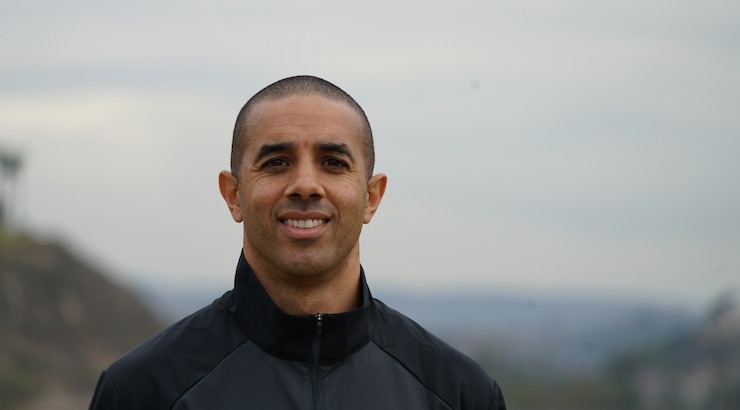
Brian Reed: In women’s collegiate soccer, you have over 300 DI schools — so there is no way the 80 teams in the U.S. Soccer Development Academy can possibly service all those colleges and universities — and that is just at the Division I level.
Rob Becerra: And, there are distinct benefits to playing ECNL. For example, the benefits of single age teams in ECNL as compared to the dual age groups in the DA.
ECNL has created a genuine platform of excellence, and showcasing all its benefits and plus reminding players of the social side where they can still play soccer in high school — the ECNL pathway can make more sense for many top “Amazing Young Women” who are looking to go to college.
Typically, clubs with both DA and ECNL, might take their best coaches and assign them to the DA teams. At Surf, we are continuing to invest in our ECNL program.
We’ve brought in Brian as dedicated resource, and we will continue to build our ECNL program into one of the best programs in the US. For many ECNL is the right choice. We never want ECNL players and their families to feel like they are second. They are first, but just in a different arena.
Brian Reed: On the women’s collegiate landscape, there is so much more opportunity than in men’s college soccer.
If you look at the trends in men’s college soccer, more often than not, the impact players on a lot of the top collegiate teams are foreign players.
This is not the case on the women’s side.
The impact players in women’s college soccer are domestic players, often recruited from top youth soccer clubs, like San Diego Surf SC.
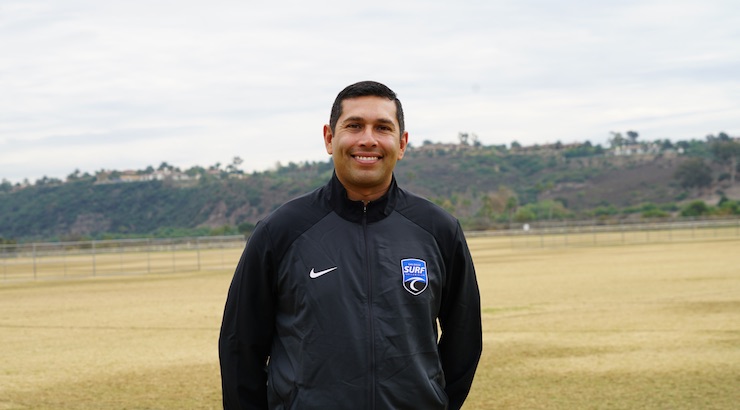
Rob Becerra: If you are the very best at what you do and have dreams of playing on the Women’s National Team, you want to play for the DA because it is an 11-month program. This is your biggest differential.
Playing in the DA also gives players more immediate access to U.S. Soccer scouts. U.S. Soccer sends technical advisers to watch the DA games and players receive greater visibility to national team scouts. If your goal is college, ECNL is the perfect choice.
Brian Reed: ECNL caters to college coaches, whereas for the U.S. Soccer DA, it is not their first priority.
Diane Scavuzzo: Many college coaches prefer attending ECNL Showcases over DA Showcases ….
Brian Reed: Yes, ECNL events are designed with college coaches in mind to maximize recruiting potential. Often DA Showcases have multiple games played at the same time, making it challenging for collegiate coaches to be able to maximize recruiting opportunities.
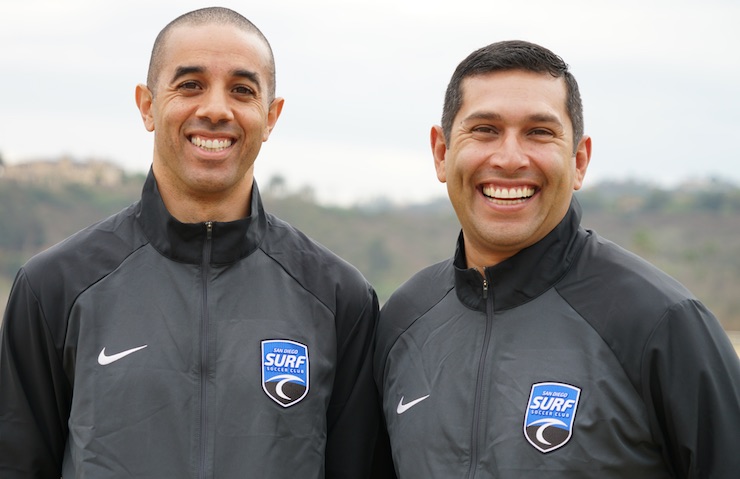
Diane Scavuzzo: What was the most valuable lesson you have learned as a coach?
Rob Becerra: The most valuable lesson I discovered, and I learned this while I was at Stanford, is how important it is for a coach to always stay in character.
Whatever your character is for that season, you stay in character. So, when we are coaching a national championship game, we stay in character.
The second I break character I create tension in my team, I have created an aura of change they don’t need.
Staying in character is the hardest thing for a young coach to learn.
Diane Scavuzzo: What is your strongest quality as a leader?
Rob Becerra: Guiding others to empower themselves, being there as a resource, but allowing people who are good at what they do, to do it!
Diane Scavuzzo: On a final note, what is your philosophy on being a great coach?
Rob Becerra: A great coach is someone who never stops learning and who is passionate about their work.

